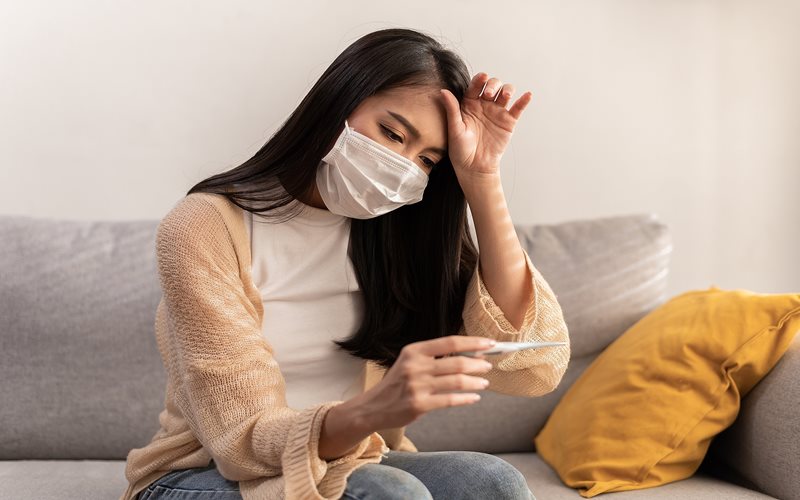Viral fever is a term used to describe fevers primarily caused by viruses. It is important for those suffering from a viral fever to consume a nutritious diet to aid in their recovery. Let’s explore in detail what someone with a viral fever should eat.
1 The Importance of Diet for People with Viral Fever
 The importance of diet for people with viral fever
The importance of diet for people with viral fever
A balanced and healthy diet is key to optimal body function and efficiency. Additionally, consuming nutritious foods helps combat infections and prevents illnesses effectively.
When the body is battling a viral fever, it loses essential nutrients. Therefore, it is crucial to provide your body with a sensible diet that includes a variety of foods to aid in recovery.
Here are some reasons why diet plays a crucial role for people with viral fever:
-
Electrolyte and Fluid Intake: Fever can lead to significant fluid loss. Consuming electrolyte-rich drinks like coconut water or oral rehydration solutions helps replenish lost fluids and aids in faster recovery.
-
Energy Provision: Viral fever can leave you feeling exhausted and depleted of energy. A well-rounded diet, incorporating various foods, ensures your body receives the necessary energy it needs.
2 What Should People with Viral Fever Eat?
 What should people with viral fever eat?
What should people with viral fever eat?
Fluid-Rich Foods
It is important for individuals with viral fever to consume fluid-rich foods and drinks that help replenish fluids and minerals in the body. Opt for coconut water, oral rehydration solutions, and other electrolyte-rich beverages to maintain hydration and flush out toxins.
Vitamin C-Rich Foods
Foods abundant in vitamin C, including oranges, lemons, and guava, can boost white blood cell production, strengthen the immune system, and expedite recovery.
Protein-Rich Foods
Consuming adequate protein is essential for repairing damaged tissues and bolstering the immune system. Include lean meats, fish, and beans in your diet, as they are excellent sources of protein.
Easy-to-Digest Foods
Opt for easily digestible and absorbable foods like porridge, soups, and broths. This aids in smooth digestion and enhances the body’s ability to absorb nutrients.
Whole Grains
Lastly, incorporate whole grains or brown rice into your diet to provide your body with essential nutrients and fiber. These foods support healthy digestion and accelerate the recovery process.
3 What Should People with Viral Fever Avoid Eating?
It is advisable to steer clear of the following foods to prevent exacerbating the fever:
-
Sugary Foods: Avoid sugary treats like cakes, pastries, and sugary drinks. Excess sugar can weaken the immune system, making it harder for your body to fight off viruses.
-
Greasy and Fatty Foods: Deep-fried and greasy foods are high in fat and can negatively impact stomach health, hindering efficient digestion. This makes nutrient absorption challenging and disrupts the recovery process.
-
Spicy Foods: Consuming spicy foods during a viral fever can irritate the throat and aggravate coughing and sore throat symptoms.
-
Caffeinated and Alcoholic Beverages: Limit your intake of coffee, strong tea, and alcoholic drinks, as they can lead to dehydration.
4 Post-Viral Fever Recovery Tips
 Post-viral fever recovery tips
Post-viral fever recovery tips
Here are some tips to aid in your recovery after a viral fever:
- Ensure you get adequate rest each day to expedite the recovery process.
- Drink electrolyte-rich beverages to stay hydrated.
- Only take medications prescribed by your doctor, and avoid self-medicating without medical advice.
- Stay at home to prevent spreading the virus to others.
- Monitor your symptoms, and if your fever persists or reaches 39 degrees Celsius or higher, seek medical attention immediately.
This article has provided insights into the dietary needs of individuals with viral fever, including what to eat and what to avoid. We hope that this information empowers you to take better care of your health and well-being.
Source: suckhoedoisong.vn






























